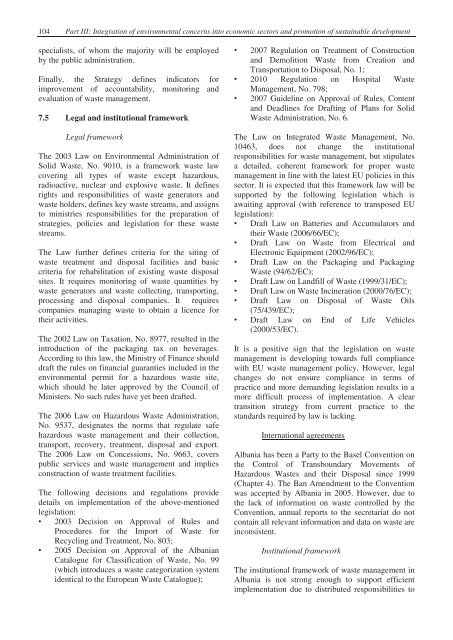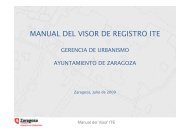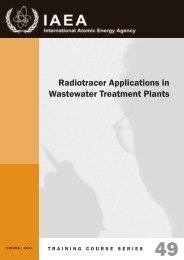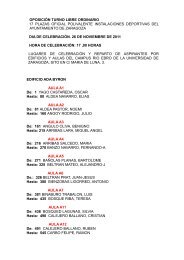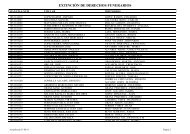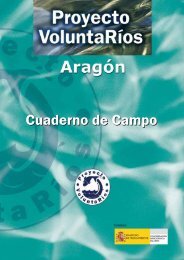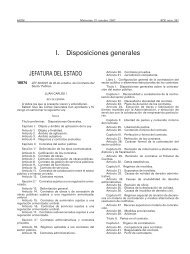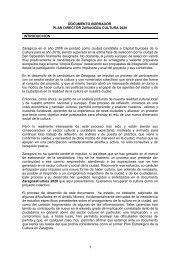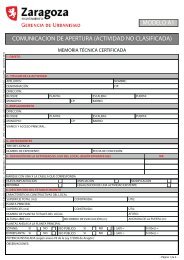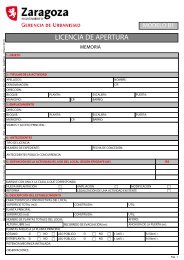Second Environmental Performance Review of Albania
Second Environmental Performance Review of Albania
Second Environmental Performance Review of Albania
You also want an ePaper? Increase the reach of your titles
YUMPU automatically turns print PDFs into web optimized ePapers that Google loves.
104 Part III: Integration <strong>of</strong> environmental concerns into economic sectors and promotion <strong>of</strong> sustainable developmentspecialists, <strong>of</strong> whom the majority will be employedby the public administration.Finally, the Strategy defines indicators forimprovement <strong>of</strong> accountability, monitoring andevaluation <strong>of</strong> waste management.7.5 Legal and institutional frameworkLegal frameworkThe 2003 Law on <strong>Environmental</strong> Administration <strong>of</strong>Solid Waste, No. 9010, is a framework waste lawcovering all types <strong>of</strong> waste except hazardous,radioactive, nuclear and explosive waste. It definesrights and responsibilities <strong>of</strong> waste generators andwaste holders, defines key waste streams, and assignsto ministries responsibilities for the preparation <strong>of</strong>strategies, policies and legislation for these wastestreams.The Law further defines criteria for the siting <strong>of</strong>waste treatment and disposal facilities and basiccriteria for rehabilitation <strong>of</strong> existing waste disposalsites. It requires monitoring <strong>of</strong> waste quantities bywaste generators and waste collecting, transporting,processing and disposal companies. It requirescompanies managing waste to obtain a licence fortheir activities.The 2002 Law on Taxation, No. 8977, resulted in theintroduction <strong>of</strong> the packaging tax on beverages.According to this law, the Ministry <strong>of</strong> Finance shoulddraft the rules on financial guaranties included in theenvironmental permit for a hazardous waste site,which should be later approved by the Council <strong>of</strong>Ministers. No such rules have yet been drafted.The 2006 Law on Hazardous Waste Administration,No. 9537, designates the norms that regulate safehazardous waste management and their collection,transport, recovery, treatment, disposal and export.The 2006 Law on Concessions, No. 9663, coverspublic services and waste management and impliesconstruction <strong>of</strong> waste treatment facilities.The following decisions and regulations providedetails on implementation <strong>of</strong> the above-mentionedlegislation:• 2003 Decision on Approval <strong>of</strong> Rules andProcedures for the Import <strong>of</strong> Waste forRecycling and Treatment, No. 803;• 2005 Decision on Approval <strong>of</strong> the <strong>Albania</strong>nCatalogue for Classification <strong>of</strong> Waste, No. 99(which introduces a waste categorization systemidentical to the European Waste Catalogue);• 2007 Regulation on Treatment <strong>of</strong> Constructionand Demolition Waste from Creation andTransportation to Disposal, No. 1;• 2010 Regulation on Hospital WasteManagement, No. 798;• 2007 Guideline on Approval <strong>of</strong> Rules, Contentand Deadlines for Drafting <strong>of</strong> Plans for SolidWaste Administration, No. 6.The Law on Integrated Waste Management, No.10463, does not change the institutionalresponsibilities for waste management, but stipulatesa detailed, coherent framework for proper wastemanagement in line with the latest EU policies in thissector. It is expected that this framework law will besupported by the following legislation which isawaiting approval (with reference to transposed EUlegislation):• Draft Law on Batteries and Accumulators andtheir Waste (2006/66/EC);• Draft Law on Waste from Electrical andElectronic Equipment (2002/96/EC);• Draft Law on the Packaging and PackagingWaste (94/62/EC);• Draft Law on Landfill <strong>of</strong> Waste (1999/31/EC);• Draft Law on Waste Incineration (2000/76/EC);• Draft Law on Disposal <strong>of</strong> Waste Oils(75/439/EC);• Draft Law on End <strong>of</strong> Life Vehicles(2000/53/EC).It is a positive sign that the legislation on wastemanagement is developing towards full compliancewith EU waste management policy. However, legalchanges do not ensure compliance in terms <strong>of</strong>practice and more demanding legislation results in amore difficult process <strong>of</strong> implementation. A cleartransition strategy from current practice to thestandards required by law is lacking.International agreements<strong>Albania</strong> has been a Party to the Basel Convention onthe Control <strong>of</strong> Transboundary Movements <strong>of</strong>Hazardous Wastes and their Disposal since 1999(Chapter 4). The Ban Amendment to the Conventionwas accepted by <strong>Albania</strong> in 2005. However, due tothe lack <strong>of</strong> information on waste controlled by theConvention, annual reports to the secretariat do notcontain all relevant information and data on waste areinconsistent.Institutional frameworkThe institutional framework <strong>of</strong> waste management in<strong>Albania</strong> is not strong enough to support efficientimplementation due to distributed responsibilities to


